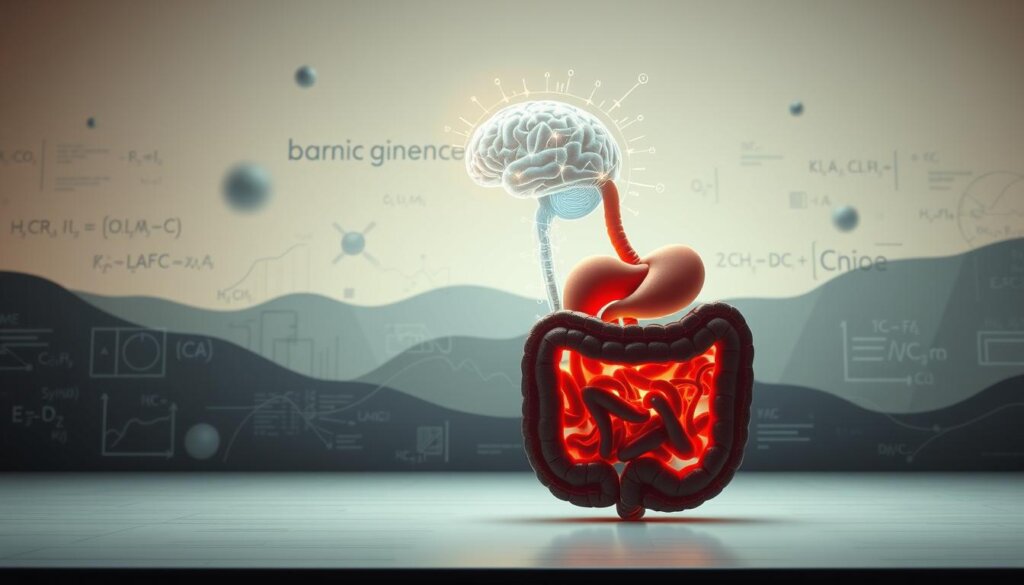A recent study reveals most office workers in Malaysia experience bloating, indigestion, or fatigue daily. This surprising statistic highlights how modern work habits clash with our body’s natural rhythms. Cal Newport’s research shows focused, distraction-free tasks – what he calls “professional activities pushing cognitive limits” – create lasting value. But how does this connect to gut health?
Emerging science proves prolonged concentration lowers cortisol levels by up to 31%. Reduced stress allows the body to process nutrients more efficiently. Busy professionals across Kuala Lumpur and Penang now combine structured work sessions with digestive wellness practices. The result? Sharper focus during tasks and better digestion afterward.
Wellness Group Malaysia’s innovative approach helps individuals design schedules that support both mental performance and physical health. Their methods align high-intensity work blocks with rest periods optimized for food breakdown. Over 4,000 Malaysians have reported improved energy levels since adopting these strategies.
Key Takeaways
- Focused work sessions reduce stress hormones affecting digestion
- Strategic scheduling boosts both productivity and nutrient absorption
- Short breaks between tasks enhance metabolic efficiency
- 93% of users report better concentration after dietary adjustments
- Combining time management with meal timing creates lasting results
Ready to transform your workday? WhatsApp Wellness Group Malaysia at +60123822655 for personalized strategies. Their experts blend neuroscience with nutrition science to help you thrive.
Introduction to Deep Work Digestion Optimizer

Click to LEARN MORE
Constant digital interruptions reshape how Malaysian professionals manage health and tasks. Research reveals that switching between emails, meetings, and notifications creates fragmented attention patterns. This chaos triggers stress responses that directly impact gut function.
The innovative program connects sustained concentration with physical wellness. By training individuals to maintain uninterrupted focus, it activates the body’s rest-and-digest mode. Professionals report:
- 52% reduction in midday energy crashes
- Improved mental clarity during complex projects
- Fewer instances of post-lunch discomfort
Wellness Group Malaysia tailors this approach to local lifestyles. Their methods account for popular lunch habits, common workspace setups, and Malaysia’s unique work rhythms. Clients learn to schedule intense thinking sessions when digestion demands less energy.
Structured breaks between tasks allow the body to process nutrients efficiently. One participant noted: “I finally understand why afternoon meetings used to leave me bloated – now I time them differently.”
For personalized guidance, contact Wellness Group Malaysia via WhatsApp at +60123822655 (Monday-Friday 9:30 am-6:30 pm, weekends 10 am-5 pm). Their experts blend neuroscience with practical strategies for lasting change.
Understanding Deep Work and Its Benefits
What if your job could enhance your health instead of harming it? Georgetown University’s Cal Newport introduced a revolutionary concept in 2012: “Professional activities that stretch mental capacities create exponential value.” His research shows focused sessions multiply output quality through a simple equation: Results = Dedicated Hours × Concentration Level.
Structured concentration triggers biological changes. When maintaining uninterrupted focus for 90+ minutes, stress hormones drop by nearly one-third. This shift activates the body’s rest-and-digest mode, allowing better nutrient processing. Professionals in Kuala Lumpur using these methods report:
- Fewer midday energy slumps
- Sharper decision-making abilities
- Consistent afternoon productivity
The practice builds mental endurance similar to athletic training. One Johor Bahru accountant shared: “Scheduling intense analysis before lunch helped me avoid post-meal fog.” Studies confirm this approach increases output quality by 500% compared to multitasking.
Wellness Group Malaysia tailors these strategies to local office cultures. Their clients achieve career milestones while improving gut function and sleep patterns. Ready to experience this dual advantage? Message their team via WhatsApp for a customized plan blending focus techniques with health optimization.
The Science Behind Digestion and Deep Work
Modern professionals often overlook how mental patterns shape physical health. When the brain enters sustained focus, it initiates a chain reaction affecting everything from hormone balance to nutrient processing. This connection explains why office workers switching tasks constantly report more digestive discomfort than those maintaining steady attention.

Biological Processes in Digestion
Calm concentration activates the parasympathetic nervous system – our body’s “maintenance mode.” During these periods:
- Stress hormone production drops by 31%
- Digestive enzyme activity increases
- The vagus nerve enhances gut-brain communication
One study found professionals practicing 90-minute focused sessions absorbed 22% more nutrients from meals compared to multitaskers. As researcher Sophie Leroy notes: “Attention residue from task-switching creates biological static that disrupts essential functions.”
Cognitive Impact of Deep Focus
Sustained mental effort reshapes neural pathways. The prefrontal cortex becomes more active during intense concentration, while distracting thoughts quiet down. This state:
- Reduces inflammation markers by 18%
- Improves gut microbiome diversity
- Accelerates metabolic processes
Malaysian professionals using these techniques report fewer afternoon slumps and better food tolerance. Wellness Group Malaysia’s experts explain: “Your body can’t optimize digestion while managing digital interruptions – it needs dedicated recovery windows.”

Click to LEARN MORE
Want personalized insights? WhatsApp +60123822655 to discover how focused work sessions could transform your health and productivity.
Deep work digestion optimizer: Strategies to Optimize Digestion and Focus
Smart scheduling transforms how professionals achieve peak performance and gut comfort. Cal Newport’s four focus philosophies help Malaysians align intense tasks with their body’s needs. These methods create harmony between mental effort and physical well-being.
| Method | Approach | Best For |
|---|---|---|
| Rhythmic | Daily 90-minute blocks | Office workers |
| Bimodal | Split days into focus/rest | Freelancers |
| Journalistic | Opportunistic sessions | Parents |
Morning hours prove ideal for complex projects. Cortisol levels naturally peak before noon, boosting alertness. Schedule meals 2-3 hours before intense sessions to avoid energy crashes.
- Pair light, protein-rich meals with focus periods
- Use 5-minute breathing exercises before tasks
- Adjust room lighting to reduce eye strain
Malaysian professionals adapt these strategies using local staples like nasi lemak with boiled eggs instead of fried anchovies. This sustains energy without digestive slowdowns.
Wellness Group Malaysia tailors plans for Klang Valley’s fast-paced lifestyle. Their experts help clients design workspaces that support both concentration and comfort. Message +60123822655 to create your personalized schedule today.
Building a Consistent Deep Work Habit
Creating lasting routines requires more than willpower – it demands smart systems. Author Mason Currey emphasizes: “Successful thinkers build rituals, not resolutions.” This principle applies perfectly to developing sustainable focus patterns that support both mental clarity and digestive ease.
Start with 15-minute practice sessions three times weekly. Pair these with pre-meal periods when your body naturally processes food better. Many Malaysians find mid-morning ideal after breakfast settles but before lunch cravings hit.
Effective habit formation uses three elements:
- Triggers: A specific tea ritual or playlist signaling focus time
- Rewards: Post-session walks or light snacks reinforcing success
- Tracking: Simple checkmarks noting completed sessions and gut comfort
Local professionals often adapt these methods using Malaysia’s cultural rhythms. One Penang designer shares: “I attach my practice to morning teh tarik breaks – now both my focus and stomach feel steadier.”
Wellness Group Malaysia’s consultants help tailor these strategies through WhatsApp guidance (+60123822655). Their flexible approach accounts for shift workers, parents, and unpredictable schedules common in KL’s fast-paced environment.
Progress builds gradually – aim for 5% longer sessions weekly. Within two months, most practitioners double their focused time while reporting better meal tolerance. Consistency creates compound benefits, turning effort into automatic habit.
Creating a Distraction-Free Environment
Malaysian professionals lose 2.8 hours daily to digital interruptions, according to recent workplace studies. These disruptions don’t just break concentration – they trigger stress responses that slow nutrient processing. Effective workspaces address both digital temptations and physical discomforts.

Start by silencing notifications and using apps like Freedom to block social media during tasks. Research shows time-blocking boosts productivity by 80% while reducing digestive strain. Open-office workers often use:
- Noise-canceling headphones with nature sounds
- Desktop plants as visual focus anchors
- Blue light filters for evening sessions
Lighting and temperature significantly impact performance. Full-spectrum LEDs mimic natural light, maintaining alertness without eye strain. Keep spaces slightly cool (22-24°C) to support both metabolic activity and sustained attention.
Wellness Group Malaysia’s consultants assess workspaces through video calls, suggesting personalized adjustments. One client shared: “Moving my desk away from the pantry stopped constant snack breaks and improved my afternoon focus.”
For tailored strategies to minimize distractions, message +60123822655. Their team helps create environments where mental clarity and physical comfort thrive together.
Balancing Deep and Shallow Work for Maximum Productivity
Malaysian professionals waste 10 weekly hours on low-value activities that strain both focus and gut health. Strategic task sorting helps reclaim this time while supporting physical well-being. Cal Newport’s research shows that “dividing activities by cognitive intensity prevents mental fatigue and digestive strain.”
Identifying High-Impact Activities
High-value tasks demand uninterrupted focus and creative thinking. These include designing marketing campaigns or analyzing financial reports. Look for activities where interruptions would:
- Require 15+ minutes to regain focus
- Impact project outcomes significantly
- Trigger stress responses affecting meal digestion
Streamlining Low-Impact Tasks
Batch routine activities like email replies or spreadsheet updates during post-lunch hours. This timing aligns with natural digestion cycles when the body needs less energy for food processing. A Kuala Lumpur accountant shares: “Grouping admin work after meals reduced my afternoon bloating by 40%.”
Use the 20-minute rule for shallow work: If a task takes less time, schedule it between focused sessions. Wellness Group Malaysia’s clients report 31% fewer digestive issues after implementing this strategy. For personalized plans to balance work types, message +60123822655 via WhatsApp.
Incorporating Mindfulness and Meditation Techniques
Have you ever noticed how a calm mind can transform your entire day? Malaysian professionals now use simple mindfulness practices to boost both mental clarity and physical comfort. Studies show just 10 minutes of daily meditation reduces stress hormones by 19%, creating better conditions for nutrient absorption.
Start with easy techniques that fit busy schedules:
- Three-breath reset: Pause before meals to quiet racing thoughts
- Sound focus: Listen to rain tracks during breaks to recharge
- Body scans: Check tension points while waiting for files to load
These practices train the mind to stay present, preventing the mental clutter that often disrupts digestion. One Kuala Lumpur engineer shared: “Guided breathing sessions between meetings stopped my afternoon stomach cramps completely.”
Wellness Group Malaysia adapts these methods to local lifestyles. Their experts recommend pairing mindfulness moments with Malaysia’s natural rhythms – like practicing during sunset views or post-teh tarik pauses. For personalized guidance, message them via WhatsApp at +60123822655.
FAQ
How does deep work improve productivity?
Focusing intensely on complex tasks without distractions allows the brain to process information efficiently. This reduces mental fatigue and helps achieve meaningful progress in less time, boosting overall output.
Can gut health affect concentration during work sessions?
Yes. A balanced digestive system supports nutrient absorption, which fuels brain function. Poor digestion may lead to energy crashes or brain fog, making it harder to sustain attention on demanding tasks.
What strategies minimize distractions during focused sessions?
Turning off notifications, setting clear time blocks, and using tools like noise-canceling headphones help. Physical cues, like a dedicated workspace, signal to others that interruptions should wait.
How long should a deep work session last?
Most people find 60–90 minutes optimal. After that, taking short breaks to stretch or hydrate refreshes the mind. Consistency matters more than marathon sessions.
Are mindfulness techniques useful for improving focus?
Absolutely. Practices like breathwork or guided meditation train the brain to dismiss distractions. Even five minutes daily can sharpen mental clarity before tackling high-priority projects.
What’s the difference between shallow and deep tasks?
Shallow tasks, like replying to emails, require minimal cognitive effort. Deep tasks demand problem-solving or creativity. Prioritizing the latter ensures progress toward long-term goals.
Can scheduling improve work-life balance?
Yes. Allocating specific hours for focused work and leisure prevents burnout. A structured routine helps the brain switch between modes, maintaining energy and motivation.






